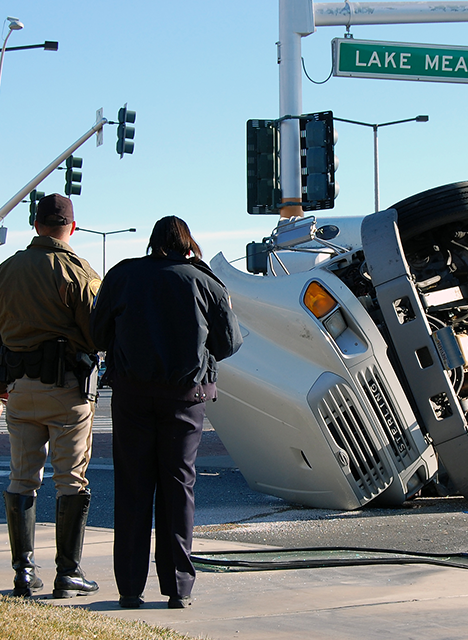Truck accidents are devastating events, often causing severe injuries or fatalities. Beyond the human cost, these accidents can have significant financial repercussions for those involved. If you've been injured in a truck accident, you may be wondering who is liable and how to recover compensation for your damages.
In many cases, trucking companies can be held responsible for accidents caused by their negligence. Here, Truck.Law explores eight key reasons why a trucking company might be liable for a truck accident.
1. Poor Truck Maintenance
Trucking companies have a legal duty to ensure their vehicles are properly maintained and safe for operation. This includes regular inspections, timely repairs, and adherence to preventive maintenance schedules. When a trucking company fails to maintain their vehicles, and that failure contributes to an accident, they can be held liable.
Examples: Brake failure due to worn pads, tire blowouts from neglected damage, steering malfunctions caused by deferred repairs.
Evidence: Police accident reports often note the condition of the truck. Additionally, the truck's "black box" data recorder can provide valuable information about the vehicle's performance leading up to the accident.
2. Inadequate Driver Training
Truck drivers are responsible for operating complex and powerful vehicles. Trucking companies have a responsibility to ensure their drivers receive proper training in safe driving practices, including defensive driving techniques, handling procedures in adverse weather conditions, and federal safety regulations. A lack of adequate training can be a significant factor in causing accidents.
Examples: Inexperienced drivers failing to navigate curves or slopes safely, improper loading procedures leading to cargo shifts, unfamiliarity with blind spots resulting in collisions.
Evidence: A trucking company's driver training records can be crucial evidence. Furthermore, a personal injury attorney can investigate the driver's qualifications and experience.
3. Pushing Drivers Beyond Hours-of-Service Limits
Federal regulations strictly limit the number of hours a truck driver can operate a vehicle continuously. These regulations are in place to prevent driver fatigue, a major contributor to accidents. Trucking companies that pressure drivers to exceed these limits or incentivize them to do so can be held liable if driver fatigue plays a role in an accident.
Examples: Falsifying logbooks to show shorter driving times, withholding breaks to meet tight deadlines, pressuring drivers to complete deliveries despite approaching their maximum legal driving hours.
Evidence: A truck's black box data can record driving hours. Additionally, driver log books and communication records with dispatchers can be used as evidence.
4. Vicarious Liability for Driver Actions
Under the legal principle of vicarious liability, an employer can be held responsible for the negligent actions of their employees while they are on the job. In the context of truck accidents, this means that a trucking company can be held liable for the negligence of their drivers during the course of their employment.
Example: A truck driver causes an accident by driving recklessly or under the influence of drugs or alcohol.
5. Negligent Hiring Practices
Trucking companies have a responsibility to conduct thorough background checks on potential drivers, including reviewing their driving records, conducting proper drug and alcohol tests, and verifying their qualifications. Hiring a driver with a history of safety violations or a lack of proper licensing can increase the risk of accidents and expose the company to liability.
Example: Hiring a driver with a history of speeding tickets or accidents, failing to verify the validity of a driver's commercial driver's license (CDL).
6. Unsafe Cargo Loading and Securing
Trucking companies are responsible for ensuring cargo is loaded and secured properly. Improperly loaded cargo can shift during transit, causing the truck to become unbalanced and potentially leading to an accident.
Example: Overloaded trucks exceeding weight limits, cargo not secured with proper straps or tie-downs, unbalanced weight distribution within the trailer.
7. Failure to Properly Maintain Driver Medical Records
Federal regulations require truck drivers to undergo regular medical evaluations to ensure they are physically fit to operate a commercial vehicle safely. A trucking company that fails to maintain these records or allows an unfit driver to operate a truck can be held liable for any resulting accidents.
Example: A driver with a known medical condition that could impair their driving ability, such as sleep apnea or diabetes, is not properly monitored by the trucking company.
8. Negligent Third-Party Contractors
Trucking companies often utilize third-party contractors for services such as maintenance, repairs, or cargo loading. If a truck accident is caused by the negligence of one of these contractors, the trucking company may still be held liable if they failed to exercise due diligence in selecting and overseeing the contractor.
Example: A mechanic from a third-party maintenance company negligently installs faulty brakes on a truck that later causes an accident. The trucking company may be liable if they failed to properly vet the maintenance company or ensure they followed proper safety protocols.
What to Do After a Truck Accident
The moments following a truck accident can be overwhelming. However, taking the following steps can help protect your health, legal rights, and ability to recover compensation:
- Move your vehicle out of traffic (if possible)
- Call the police
- Seek medical attention
- Gather evidence
- Do not discuss fault
- Contact an attorney
Seeking Compensation After a Truck Accident
If you have been injured in a truck accident caused by a trucking company's negligence, you may be entitled to compensation for your medical bills, lost wages, pain and suffering, and other damages. An experienced truck accident attorney specializing in truck accident liability can help you navigate the legal process and pursue the maximum compensation you deserve. Truck.Law encourages you to seek legal counsel to discuss the specifics of your case and understand your legal options.
Contact Truck.Law Today!
If you have been involved in a truck accident, give us a call today. Our dedicated legal team has decades of experience standing up for your rights against trucking companies. Don’t go into the fight alone. Contact Truck.Law for your free consultation.



